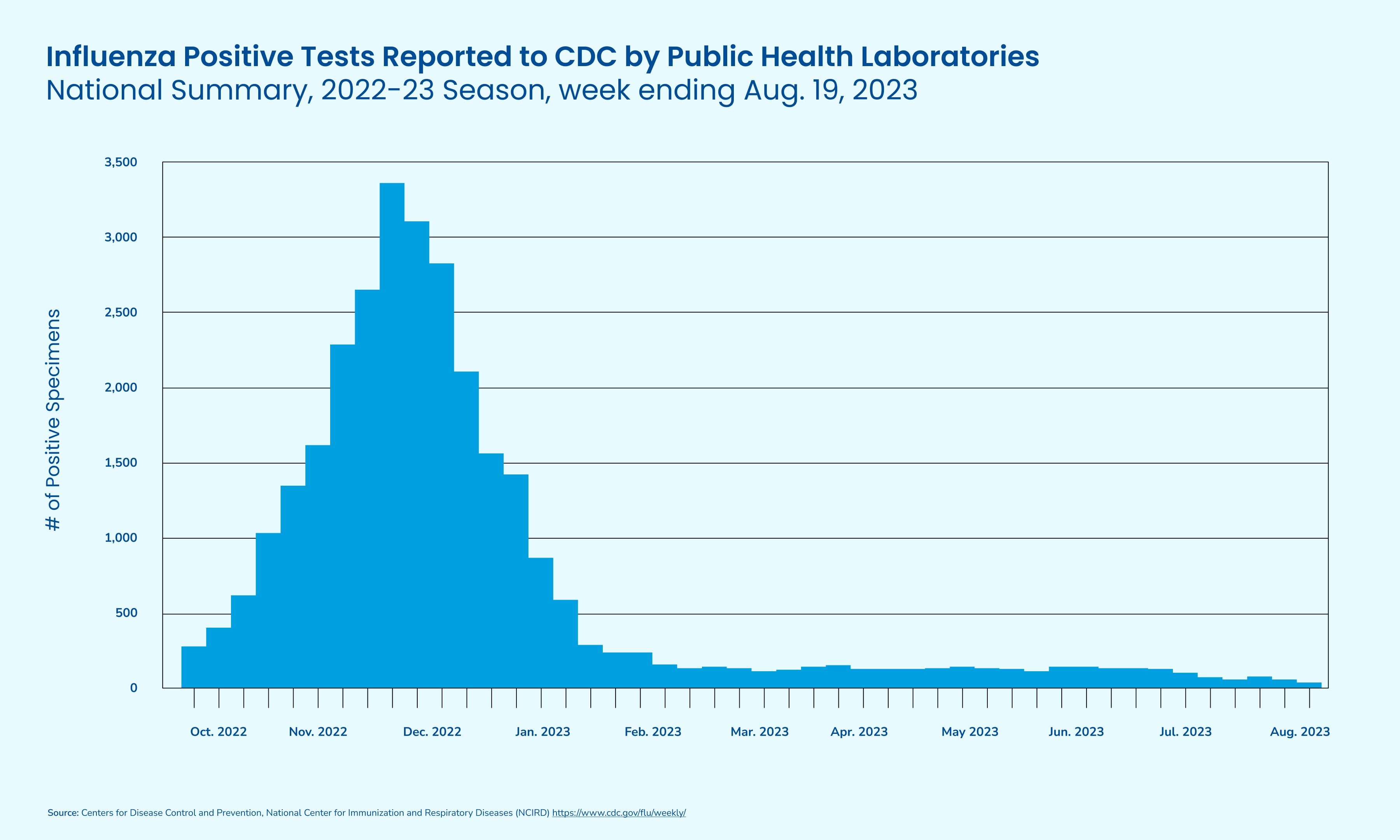When Should You Get a Flu Shot?



By getting your flu shot, you are contributing to protecting public health, helping to reduce illnesses, and helping to lower demands on the health system, according to the CDC1. But when should you get a flu shot? Find out what the CDC says is the best time for most people, as well as their recommendations for groups like those who are pregnant, 65 years or older, and more.
The best time to get a flu shot for most people
The CDC advises people to get vaccinated before flu season starts as it takes about two weeks for the body to create antibodies to protect against the flu. The exact timing and length of flu season can vary from year to year, however, flu activity begins to increase in October. Typically, most flu activity occurs between December and February, although it could be as late as May, according to the CDC2.

Here’s when most people should get a flu shot, according to the CDC2:
For most people who need only one dose of flu vaccine for the season, September and October are generally good times to be vaccinated against flu. Ideally, everyone should be vaccinated by the end of October.
CDC
You should plan to get your flu shot around September and October, though this may not be doable for everyone who wants to get the vaccine. The bottom line is that the best time to get vaccinated is before flu viruses start to spread in your community, says the CDC4.
When is it too late to get a flu shot?
Though February has been the season peak month from the 1982-2022 flu seasons, significant flu activity can last as late as May, says the CDC3. This is why it’s almost never too late to get your flu shot, as the CDC says vaccination should continue throughout the season as long as flu viruses are circulating.
When is it too early to get a flu shot?
Though it’s almost never too late to get a flu shot, the CDC advises when it may be too early in the season. The CDC says vaccination during July and August isn’t recommended for most groups5.
Here are the groups and their respective timing considerations on getting a flu shot before September, according to the CDC5:
- For most adults (especially those 65+) and pregnant persons in their first or second trimester: Getting a flu shot during July and August should be avoided, unless getting vaccinated later might not be possible
- Children 6 mos.–8 yrs who need 2 doses: This age group should get their first dose as soon as the vaccine is available.
- Children of any age who need only 1 dose: This group can get their first dose as soon as the vaccine is available.
- Pregnant persons in their 3rd trimester: This group can consider vaccination in July and August.
When should pregnant people get the flu shot?
The CDC says it’s safe for pregnant people and their developing babies to get a flu shot6. You can get a flu vaccine during any trimester of pregnancy, and the general timeline still applies to pregnant people: September and October are generally good times. However, you could consider getting vaccinated earlier (e.g., July or August) if you’re in the third trimester during those months6.
When is the best time for children to get a flu vaccine?
The CDC says children should get vaccinated every flu season, and for those children who only need one dose of the vaccine, September and October are generally good times to get the flu shot. Ideally, everyone 6 months and older should get their flu shot by the end of October8.
Children who are younger than 5 years (especially those who are younger than 2 years) are at a high risk of developing serious flu-related complications, according to the CDC. The CDC says children can get vaccinated as soon as flu vaccines become available – even if this is in July or August7.
Kids who are 6 months to 8 years and getting their first flu shot (or if their flu vaccination history isn’t known) need two doses – and the CDC recommends they get their first dose as soon as the vaccine becomes available, because the second dose needs to be given 4 weeks after the first dose7.
When should someone over 65 years old get the flu shot?
People who are 65 years or older are at a higher risk of developing serious flu complications, according to the CDC9. This is partially because our immune defenses change as we get older. That’s why flu vaccines are especially important for this group.
For most who only need one dose for the flu season, September and October are generally good times to get the flu shot. Note that most adults, especially those 65 years and older, shouldn’t get vaccinated early (in July or August) because protection decreases over time. However, if anyone can’t return later to get the flu shot, getting the shot early can be considered9.
In conclusion: When should you get a flu shot?
Getting a flu vaccine can keep you from getting sick with the flu, or reduce the severity of the flu if you still get sick despite being vaccinated, according to the CDC. However, only about half of Americans get the flu vaccine every year.10
To help protect yourself and those around you from the flu, it’s best to get a flu shot, and the CDC recommends one dose of the vaccine for the season for most people, with September and October being generally good times to get the shot4. Ideally, everyone should be vaccinated against flu by the end of October, but it’s almost never too late to get your flu shot5.

















